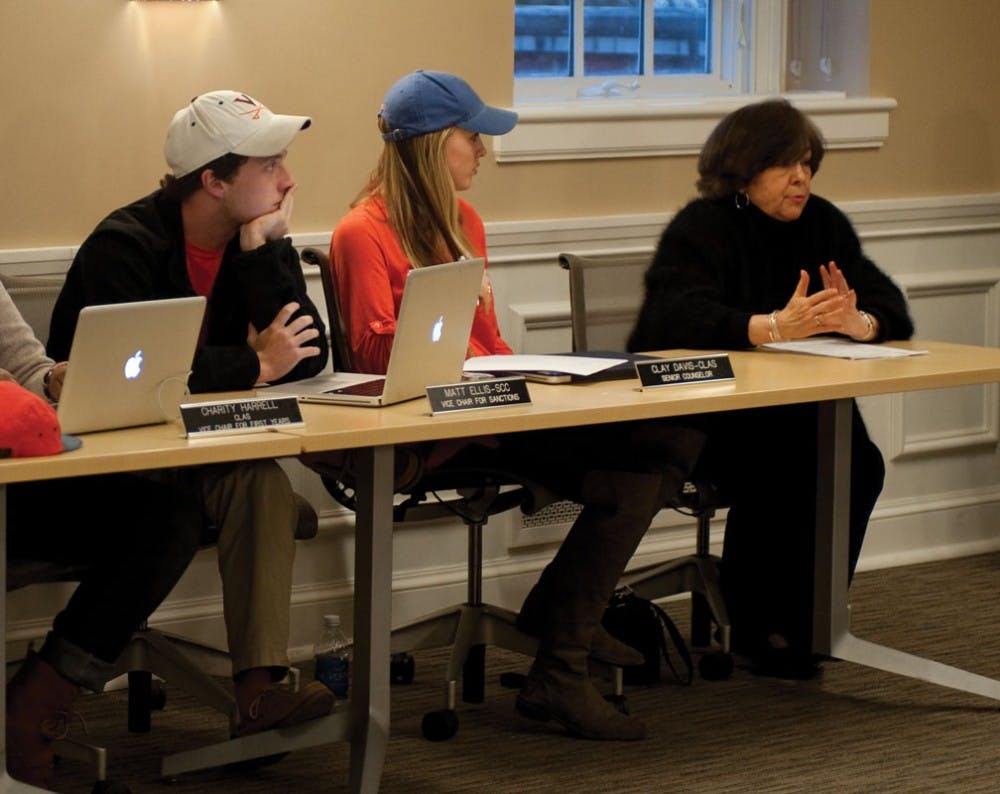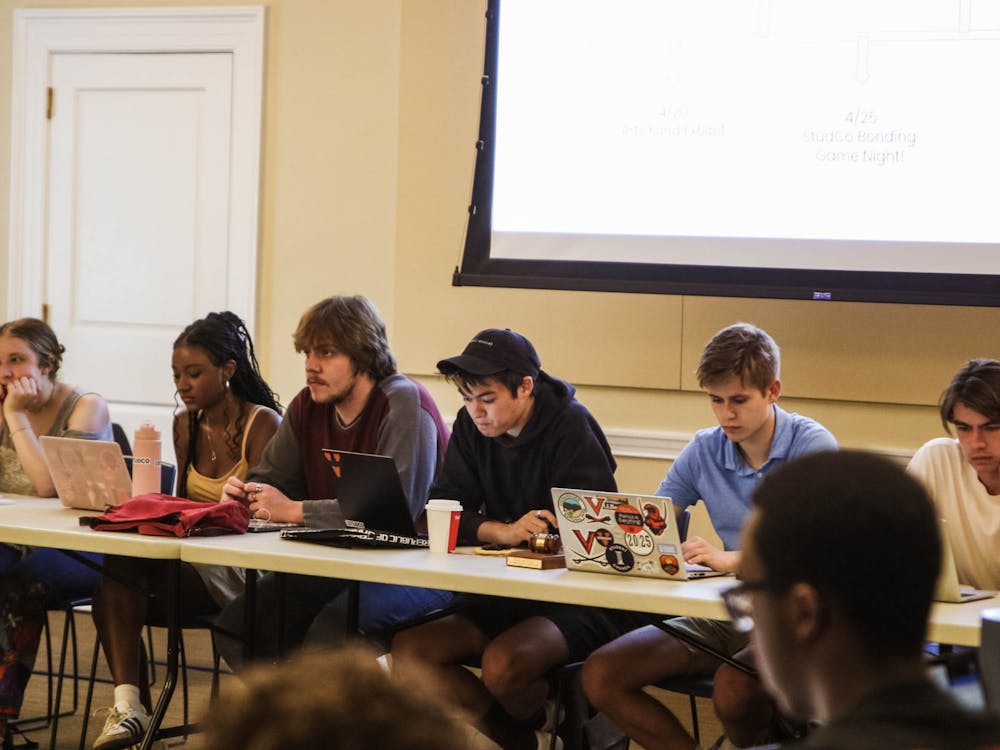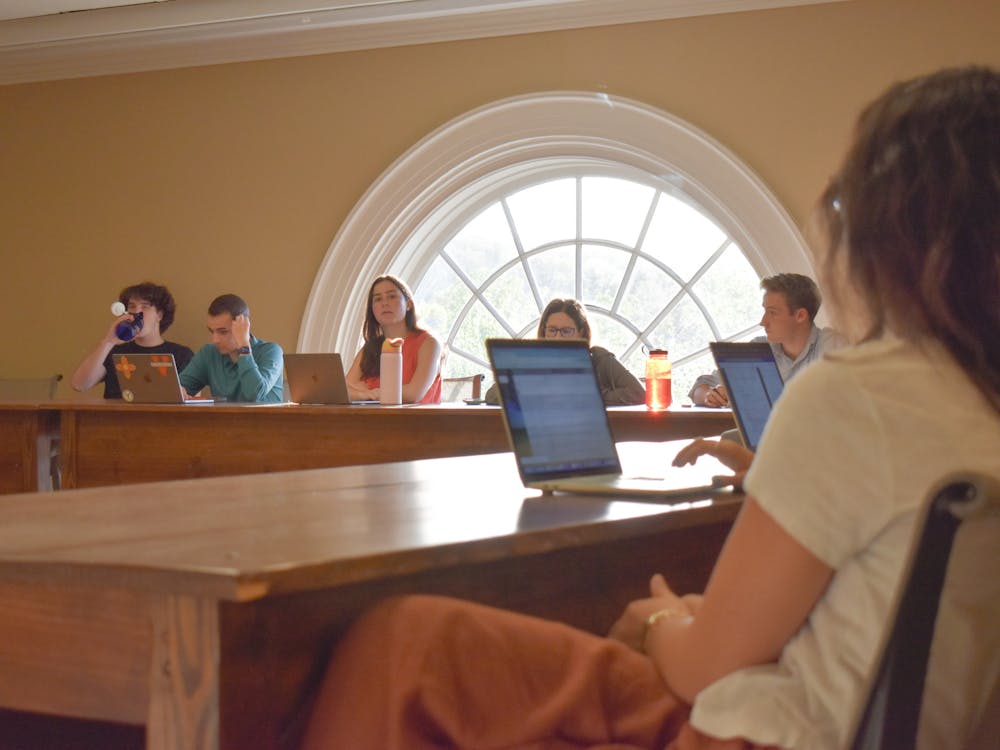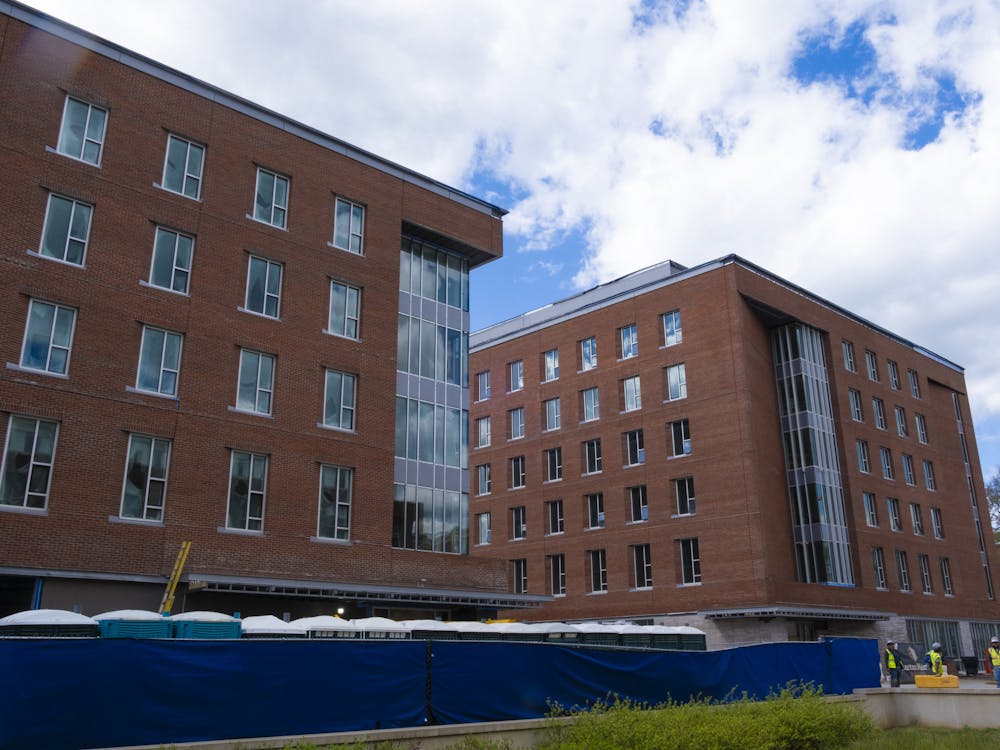The University’s Judicial Review Board Chair Martha Ballenger explained the appeals process to members of the University Judiciary Committee at the group’s weekly meeting Sunday evening. Ballenger, the assistant dean for student affairs at the Law School, explained that the board is responsible for taking appeals from both the committee and the Sexual Misconduct Board.
Decisions reached by the board — which is comprised of students, faculty, staff and administrators — are considered final for all matters on which it rules. Panels of three hear each appeal.
“I have to serve on every panel [and] we try for every appeal to have a panel that includes at least one student,” Ballenger said. “Our jurisdiction is very limited.”
Ballenger said the only three grounds for appeal are procedural error during trial, new evidence not available at the time of the trial and unduly harsh sanctions. “The only sanction I have seen appealed is suspension,” Ballenger said. “In most other instances students are willing to take their punishment.”
The low number of appeals points to the effectiveness and fairness of the system, said Senior Counselor Clay Davis, a fourth-year College student.
“[It is] completely understandable for an accused student to be confused about the sanction,” he said. “[But] the [UJC] panels are very fair and considerate to student’s previous commitments.”
Forrester said appeals on the grounds of new evidence tend not to come up because most trials occur after incidents have wound their way through the state and local courts, so most evidence has already been uncovered.
After a case has ended, Ballenger said students have 14 days to submit to her a letter in the form of a “little brief” describing their trial and the grounds for their appeal.
The chair for each trial and the complainant in the case, who Davis said is normally the dean of students, each have the opportunity to present letters to Ballenger clarifying and defending the ruling.
Ballenger and her fellow panel members review all evidence introduced at the trial and listen to the entire recording of the trial.
“I have both other panel members listen as well … because there’s a lot that comes out in the trial that doesn’t necessarily come out in the appeal documents,” Ballenger said.
The board panel has the option to either review the evidence directly and issue a decision or call its own hearing to review evidence. Ballenger said in her seven years on the board she has not seen anyone call for a hearing, in part because of the board’s commitment to student self-governance.
“We take very seriously what you have done in your trial,” Ballenger said. “We take findings of fact that you have established in your trial as established. It’s not our responsibility to rehash what you have decided.”
Ballenger said she has only heard one appeal this year, though she normally hears anywhere from two to six appeals per academic year.





